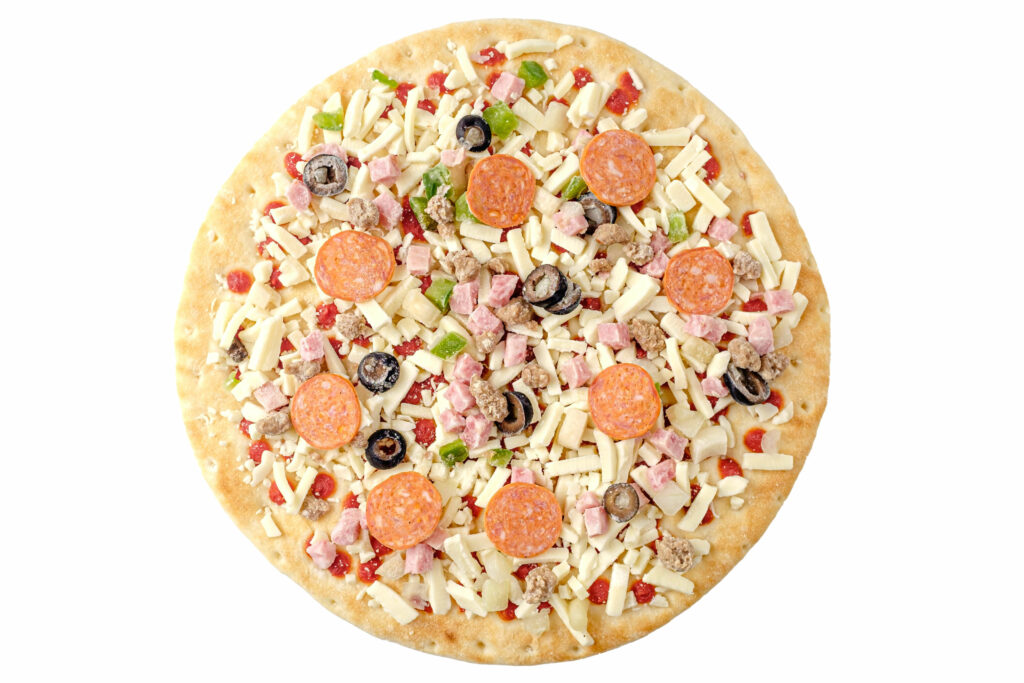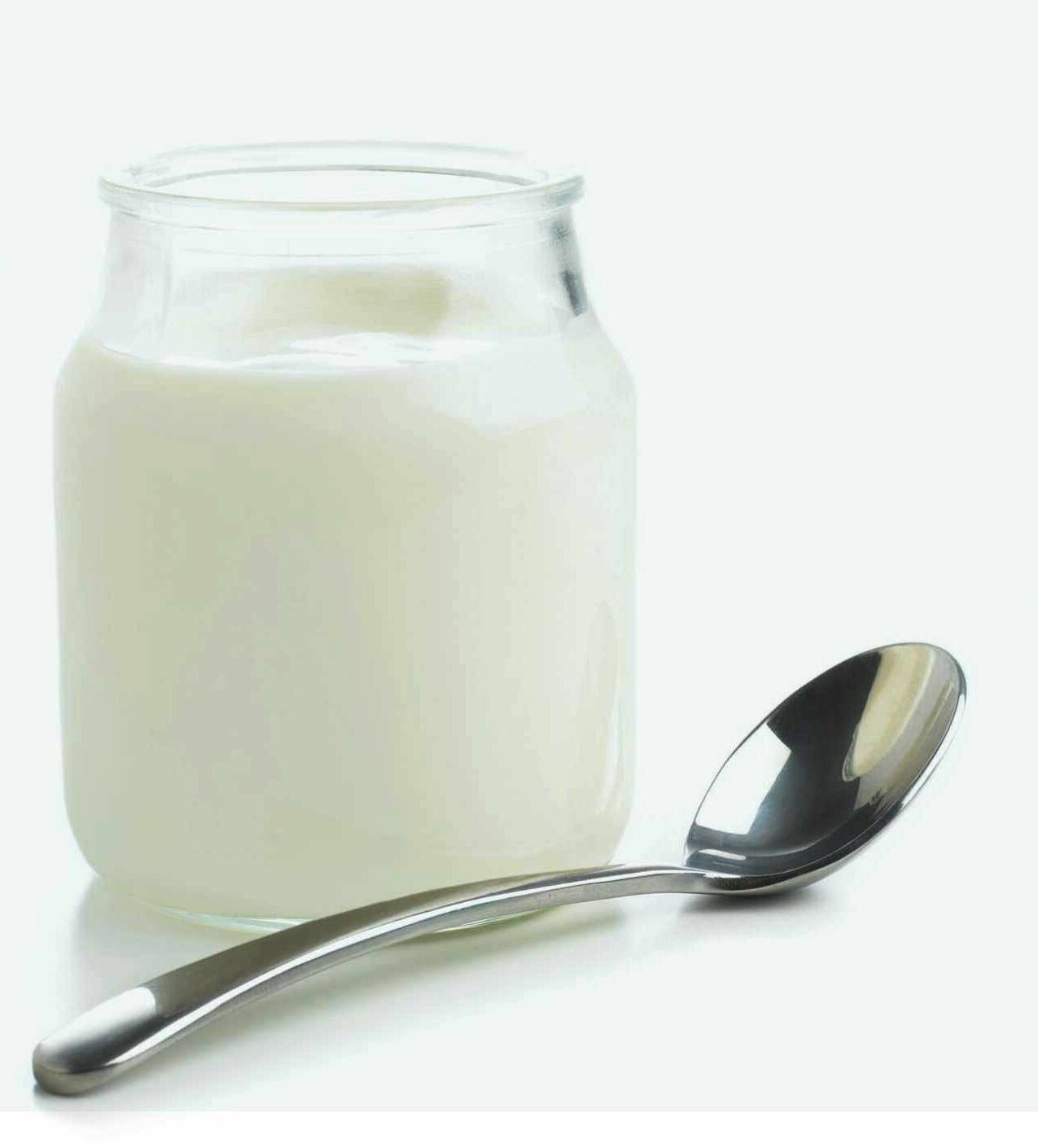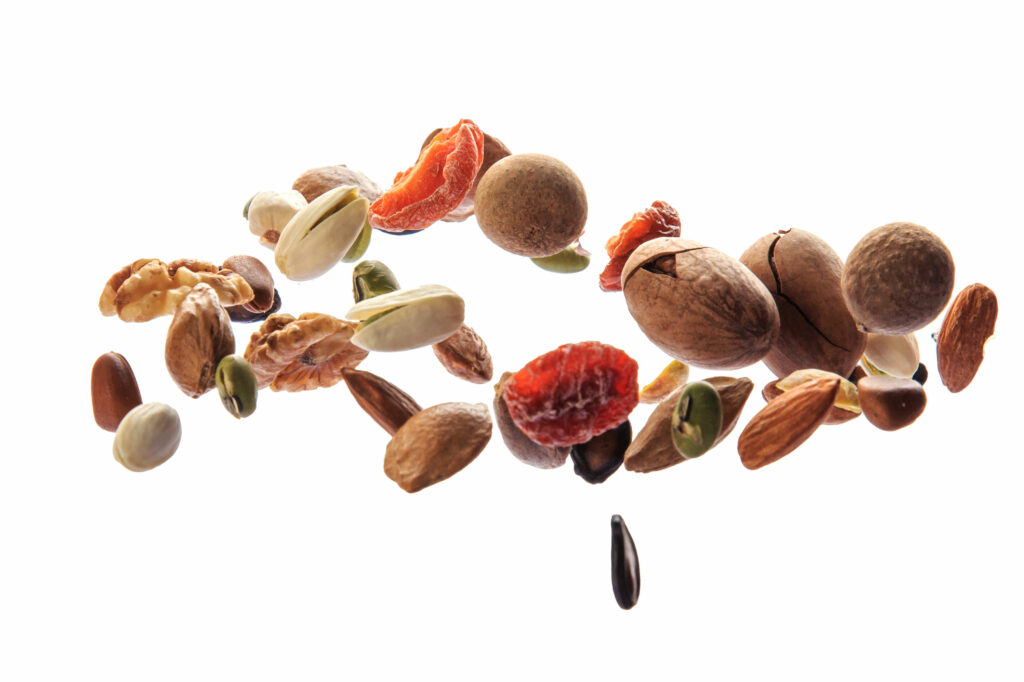PERFORMANCE Q&A
02 HOW MUCH SHOULD I LIMIT ULTRA-PROCESSED FOODS?

They’re prominent in supermarket aisles, adverts and the media, with the British Medical Journal showing they contribute to 56% of the calories consumed in the UK. But just what are ultra-processed foods? According to former Team Sky chef Nigel Mitchell, “The simplest definition of ultra-processed foods is that they contain something you wouldn’t have in your kitchen. You’ll see E-numbers and ingredients you can’t identify.”
This is because ultra-processing tends to strip out nutrients from food, such as fibre, and replace them with calorie-dense fats and sugars, plus chemicals that potentially damage our health. Mitchell adds that ultra-processed foods have long shelf lives for products that aren’t canned or preserved, such as supermarket bread. “Bread should never have a two-week shelf life.”
Before you panic, remember that not all processed foods are equal. Jarred vegetables, canned fish, fruits in syrup, cheeses and fresh bread are examples of processed foods. The processing may be the addition of salt and vinegar to vegetables or sugar to fruit to preserve them in glass or tins for instance. Meanwhile, we use non-alcoholic fermentation to make cheese and yoghurt out of milk, and bread out of dough. Since processed foods are often longer-lasting versions of whole foods (such as nuts, fruit and veg), with few extra ingredients, their nutritional value can be similar to the original version.
It’s the presence of hydrogenated vegetable oils and high-fructose corn syrup that sets ultra-processed foods apart from processed foods: think soft drinks, sweet or savoury packaged snacks, reconstituted meat and pre-prepared frozen meals. Manufacturers use emulsifiers, dyes and flavourings to improve the food’s sensory properties or mask any unpleasant qualities.
56%
Over half of the calories consumed in the UK are from ultra-processed foods
Keep it fresh
A 2019 study published in the journal Cell Metabolism found that a diet high in ultra-processed foods (up to 80% of energy intake) caused people to eat more, gaining both weight and body fat. A second set of participants was also allowed to eat as much as they wanted, but from a diet containing 20% ultra-processed foods. After two weeks, this group’s body fat and weight slightly decreased.
When cooking for his WorldTour team, EF Education-Easy Post, chef Owen Blandy tries to avoid ultra-processed foods. “I cook as much fresh food as possible and try to use foods that are merely processed, like canned beans and tomatoes, pasta and yoghurts. I won’t buy things like stir-fry sauces – there are twenty ingredients in them that you don’t need.”
In 2024, the British Medical Journal found that eating a lot of ultra-processed foods was linked with a “higher risk of adverse health outcomes”, such as heart disease and diabetes, in 71% of studies it examined. Additives were a possible explanation for the negative impact of ultra-processed foods on general health because they’re believed to harm the gut biome and cause inflammation.
“My concerns with ultra-processed foods are their lack of nutrient density and their impact on gut health”
Ultra-processed foods can leave you short of nutrients, says Dr Dana Lis, the US performance nutrition lead for Science in Sport. “My concerns with ultra-processed foods are their lack of nutrient density and their impact on gut health.” Lis usually advises eating no more than two meals a week containing ultra-processed foods. “Ultra-processed foods should be as low as possible or less than 5% of your energy intake, but we’re all busy and even as a dietician, I can’t cook for myself every night.”
Processed foods pros
It’s not all bad news. Food processing can be good for us. It makes it easier to preserve the nutrients in fruit and vegetables, for example. Blandy says healthy high-protein yoghurts, such as Skyr, are processed because they contain fermented milk. “But they’re not ultra-processed because the milk hasn’t been turned into something else, such as chocolate yoghurt,” he adds.

Popular forms of vegan protein, such as tofu and tempeh, are also healthy processed foods. They contain few additives and, in tempeh, the processing of soya through fermentation makes the protein more digestible. But when Quorn (a protein extracted from mushrooms) has been turned into fake chicken nuggets, Mitchell says: “It’s been heavily processed. Manufacturers have tried to make money out of people becoming vegan – it’s harder to make money from selling whole foods.”
Blandy says ultra-processed foods are designed to be convenient, but adds: “If you maximise your time through planning and using your freezer, fridge and store cupboard, you can avoid them. With fresh ingredients, you can create the same flavours without having the packaging and all the emulsifiers. Cook four portions and freeze or refrigerate them. Don’t ever cook just one serving.”
TOP TIP
Nigel Mitchell recommends making your own bars and rice cakes. He also devised a “gravel mix” of pistachios, sultanas, sweets and sunflower seeds for Alistair Brownlee, when the Olympic triathlon gold medallist began gravel racing. These homemade snacks will also save you money over shop-bought alternatives.

If you’re caught out by hunger when you’re not at home, it’s easy to buy an ultra-processed snack. Again, carrying whole foods is a healthier approach. Mitchell is now a nutrition expert for American Pistachio Growers. “Pistachios are one of the only foods that I know containing protein, antioxidants and healthy fats. They’re a great option for people wanting to eat less processed food.” He also recommends swapping sliced white bread for wholegrain, and hydrogenated vegetable oils for extra virgin olive oil.
Sports nutrition
All commercially available sports nutrition counts as ultra-processed. But there’s a big difference between this and junk food, says Lis, who counts 2023 Paris-Roubaix Femmes winner Alison Jackson among her clients, for example. “Sports foods are technically processed, but the ingredients are fairly basic and there’s scientific rationale.”
Lis adds that sports food doesn’t usually contain potentially harmful ingredients. “Gels have maltodextrin and fructose, a stabiliser or two, and a couple of antioxidants to keep them fresh. I don’t see that having a negative effect on the human body.”

The intensity and duration of your ride will determine whether you should use sports food as a source of carbohydrates. “Find the balance between performance and ultra-processed foods,” explains Lis. “On longer or easier rides, go with real food such as a sandwich or banana.” Blandy agrees: “You don’t really need gels on the Sunday ride. You have time to eat real food on the move or stop at a cafe.”
Lis says there’s no point in fixating on a single ingredient. “One food isn’t going to wreck your body, gut biome or cause cancer. Your diet is made up of everything you eat. Even if you do fuel a couple of rides a week on ultra-processed gels, it’s not going to have a significant effect on your entire health. Some riders get obsessed with eating what they’d call ‘clean’ foods and compromise their ability to get in the fuel they need.” So don’t let any dietary changes leave you short of energy.
TOP TIP
You can make your own energy drinks, but getting the ratio of sugars right yourself is tricky. Dr Kevin Currell, Director of Performance Support and Science at the UK Sports Institute, recommends adding 60-80g of table sugar to a litre of no-added-sugar cordial and water.